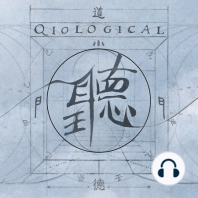63 min listen

152 Tracing the Wind Part II, Implementing a Research Study for Covid19- Practical Application
152 Tracing the Wind Part II, Implementing a Research Study for Covid19- Practical Application
ratings:
Length:
72 minutes
Released:
Jun 16, 2020
Format:
Podcast episode
Description
The Chinese say 活到老學到老 hou dao lao, xue dao lao, which can be translated as “continue learning for as long as you live.” It’s good advice, and when it comes to the practice of medicine, it’s essential. Our work gives us an endless opportunity to learn and deepen our understanding.In this conversation with Kathy Taromina, Craig Mitchell and Dan Bensky we discuss what they have been learning about using Chinese herbal medicine in responding to the symptoms of Covid-19, as they carry out a study that is being done at the Seattle Institute of East Asian Medicine.Doctors of the past have left us a treasure trove of ideas and clinical strategies for treating epidemic illness and all of these methods are coming into play in our modern world, as we learn more about how the Coronavirus affects different people.Listen into this conversation on how experienced herbalists are learning from the wide range of presentations that are showing up in the clinic. And how you can access the information that is being collected from this study for your own learning and use in the treatment of infectious illness.Head on over to the show notes page for more information about this episode and for links to the resources discussed in the interview.
Released:
Jun 16, 2020
Format:
Podcast episode
Titles in the series (100)
020 Right There In Plain Sight_ Chinese Facial Reading • Lillian Bridges by Qiological Podcast